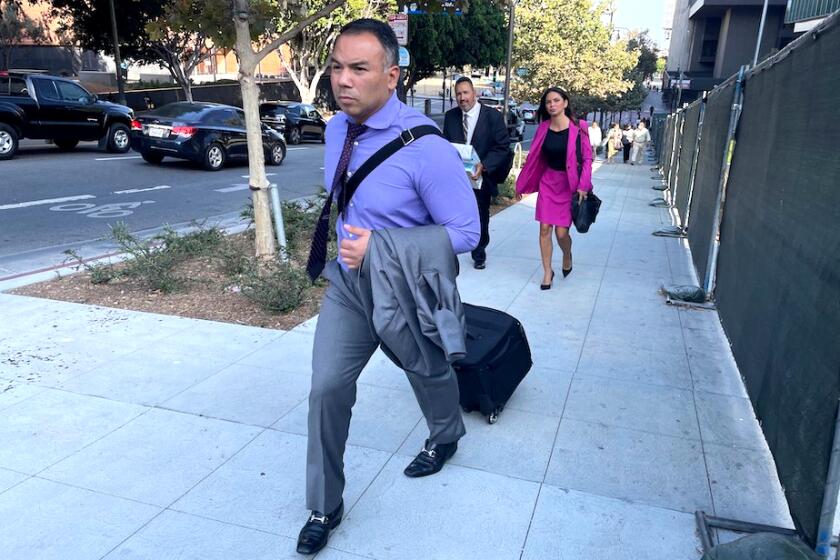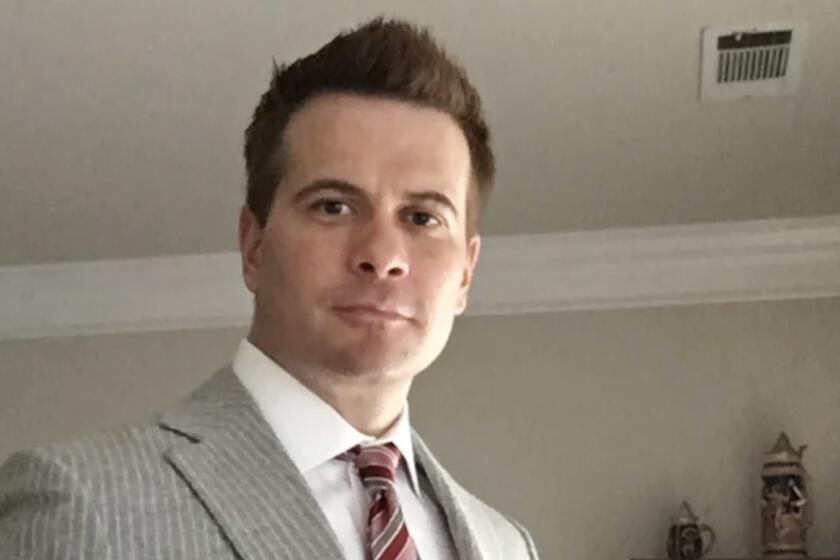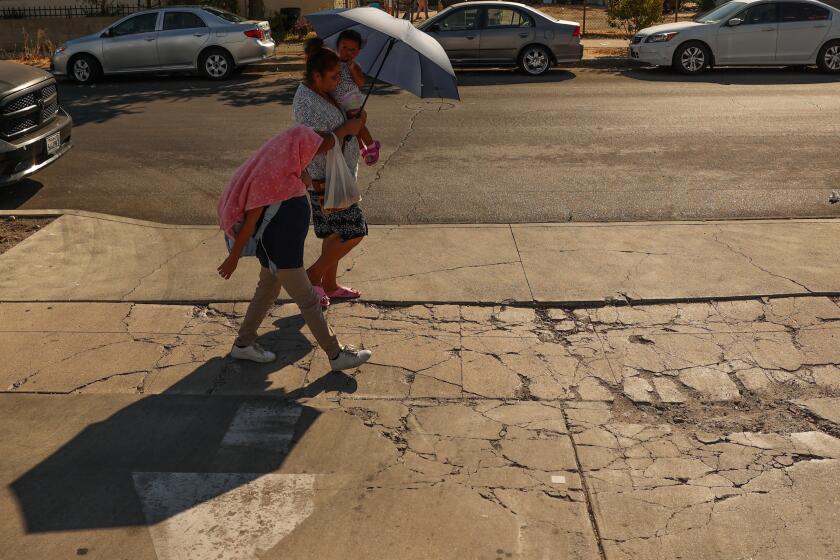Commentary : Hot Line or End of Line, Which?
It’s 2 a.m. Saturday. Mary, 14, is wandering the streets of Santa Ana. Her father had just attempted to sexually molest her, and she ran away. This is not the first time that this has happened. For the past two years he has been touching her. Each time she felt humiliated but too afraid of him to tell anyone. This time he went too far, so she ran.
But where could Mary go? She couldn’t call the police because she feared that they would just take her home and confront her father. She had no other family or friends that she could confide in.
Mary found a phone booth. On the front page she found an emergency number for the Family Crisis Hotline. She called. The counselor understood her problem and immediately arranged to have Mary picked up and brought to a shelter for adolescents. At the shelter Mary received whatever counseling and medical attention was necessary. The proper agencies were notified of the problem, and steps were taken to either reunite the family or place Mary in a foster home. Most important, Mary feels and is safe.
It’s 2:30 a.m. Lisa, a 36-year-old housewife and mother of two children, is in a crisis. Throughout her 12-year marriage her husband has been battering her, both physically and emotionally. It started with verbal abuse during the course of arguments. Through the years it progressed into pushing, shoving, slapping and finally hitting with a closed fist. For years she wanted to leave, but Lisa, with children ages 10 and 6, was totally dependent on her husband for support. So she stayed, praying each day that he would change.
But tonight her husband came home drunk and beat her with his fists and a fireplace stoker. When the children woke up crying, he went after them. He told her that if she tried to leave, he would kill her. Finally, in a drunken stupor, he collapsed on the bed. Lisa knew that she had to get out--now. The question was “to where?”
She had called the police before. They came to the house, but the only advice they gave her was to get a restraining order against her husband. This may be good in some cases, but it was too late for that now. She knew that her husband would not honor the restraining order, and she was afraid for her life and her children’s safety.
Then Lisa turned on her television, and the cable company was broadcasting public service announcements. The one that caught her eye was a 24-hour Family Crisis Hotline. She called. The counselor was concerned for her safety and was able to get Lisa and her children placed in a battered women’s shelter. At the shelter Lisa was safe. Her husband could not trace her there.
Lisa and the children received medical assistance and psychological counseling. In addition, Lisa was counseled on her legal rights, assisted in filing for a divorce and given employment assistance. If her husband gets the proper help, perhaps they can be a family again. If not, Lisa is well on her way to being self-supportive. Again, what’s most important is that Lisa is safe.
It’s 2:50 a.m. Jim, 40, is in severe depression. In the past year he has gone through a divorce that he didn’t want, lost his job and lost all confidence in his ability to go on. He is sitting in his Mission Viejo apartment, and there is a bottle of pills on the kitchen table. One minute he wants to end his life and the next he is too afraid. He takes the pills. Moments later he realizes that he did the wrong thing. In desperation, Jim calls the information operator for help. The operator immediately connects him with the Family Crisis Hotline. The counselor went into action. While Jim is still on the line, the police are called, the phone call traced and paramedics dispatched . The counselor talks to Jim, reassuring him that help is on the way. The paramedics arrive, give Jim emergency care and get him to a hospital. There, Jim received medical assistance and, finally, the psychological counseling that he should have sought months ago. Jim is safe.
These stories are true. They are examples of the calls I receive as a hot-line volunteer. Every day, I and other hot-line volunteers handle all kinds of calls concerning rape, child abuse, substance abuse, domestic violence, runaways, suicide attempts and just plain loneliness.
Many of the hot lines and crisis centers are in danger of closing. The reasons vary from lack of funds to lack of volunteers. This concerns me. I know firsthand how vital we are to the wellness of the community. I worry about what would happen to Mary, Lisa, Jim and the other 3,000 people who telephone us every month for help if we weren’t there to take the call.
More to Read
Sign up for Essential California
The most important California stories and recommendations in your inbox every morning.
You may occasionally receive promotional content from the Los Angeles Times.










